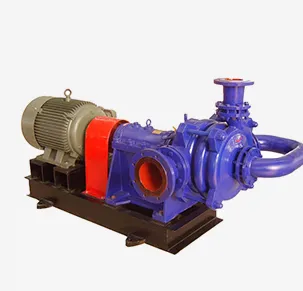TEL:
+86 13120555503
Punjabi
- Afrikaans
- Albanian
- Amharic
- Arabic
- Armenian
- Azerbaijani
- Basque
- Belarusian
- Bengali
- Bosnian
- Bulgarian
- Catalan
- Cebuano
- Corsican
- Croatian
- Czech
- Danish
- Dutch
- English
- Esperanto
- Estonian
- Finnish
- French
- Frisian
- Galician
- Georgian
- German
- Greek
- Gujarati
- Haitian Creole
- hausa
- hawaiian
- Hebrew
- Hindi
- Miao
- Hungarian
- Icelandic
- igbo
- Indonesian
- irish
- Italian
- Japanese
- Javanese
- Kannada
- kazakh
- Khmer
- Rwandese
- Korean
- Kurdish
- Kyrgyz
- Lao
- Latin
- Latvian
- Lithuanian
- Luxembourgish
- Macedonian
- Malgashi
- Malay
- Malayalam
- Maltese
- Maori
- Marathi
- Mongolian
- Myanmar
- Nepali
- Norwegian
- Norwegian
- Occitan
- Pashto
- Persian
- Polish
- Portuguese
- Punjabi
- Romanian
- Russian
- Samoan
- Scottish Gaelic
- Serbian
- Sesotho
- Shona
- Sindhi
- Sinhala
- Slovak
- Slovenian
- Somali
- Spanish
- Sundanese
- Swahili
- Swedish
- Tagalog
- Tajik
- Tamil
- Tatar
- Telugu
- Thai
- Turkish
- Turkmen
- Ukrainian
- Urdu
- Uighur
- Uzbek
- Vietnamese
- Welsh
- Bantu
- Yiddish
- Yoruba
- Zulu
Telephone: +86 13120555503
Email: frank@cypump.com
ਫਰ. . 17, 2025 13:59 Back to list
Chemical Pumps
In the ever-evolving domain of waste management, the role of waste water pumps stands out as both pivotal and transformative. Their significant function, bridging both ecological and industrial sectors, offers invaluable insights into efficient water reuse and sustainable development. With a broader acceptance of environmental responsibility, waste water pumps are no longer just auxiliary tools but central to strategic operations in both municipal and industrial settings.
Authoritative voices within the industry emphasize the necessity for proper installation and regular maintenance of waste water pumps. Improper setup can lead to decreased efficiency and premature failure, negating the benefits of even the most advanced systems. Thus, engaging with certified and experienced pump technicians is essential. Their expertise ensures that systems operate smoothly, meeting both performance expectations and compliance standards. The trustworthiness of a waste water pump provider can be gauged through certifications, customer testimonials, and industry endorsements. A strong track record of reliability and innovation often indicates a commitment to quality and customer satisfaction. Furthermore, organizations that provide extensive training and support for their products typically exhibit a higher level of trustworthiness. They empower users to maximize the potential of their systems, fostering a partnership rather than simply a supplier-customer relationship. In sum, waste water pumps are an integral component of modern waste management strategies. Their role extends beyond simple fluid movement; they are cornerstones in the architectural framework of sustainable urban development. Embracing this technology with a comprehensive understanding and application-specific adaptations ensures both environmental stewardship and operational excellence. Companies that strategically implement and maintain state-of-the-art waste water pump systems not only advance their sustainable goals but also set benchmarks in the global narrative of environmental innovation. Thus, whether examining their function from the perspective of a municipal engineer, an industrial manager, or an environmental policy maker, the consensus is clear waste water pumps are critical agents of change. The challenge and opportunity lie in their strategic deployment, ensuring that they meet today's demands while preparing for tomorrow's challenges.


Authoritative voices within the industry emphasize the necessity for proper installation and regular maintenance of waste water pumps. Improper setup can lead to decreased efficiency and premature failure, negating the benefits of even the most advanced systems. Thus, engaging with certified and experienced pump technicians is essential. Their expertise ensures that systems operate smoothly, meeting both performance expectations and compliance standards. The trustworthiness of a waste water pump provider can be gauged through certifications, customer testimonials, and industry endorsements. A strong track record of reliability and innovation often indicates a commitment to quality and customer satisfaction. Furthermore, organizations that provide extensive training and support for their products typically exhibit a higher level of trustworthiness. They empower users to maximize the potential of their systems, fostering a partnership rather than simply a supplier-customer relationship. In sum, waste water pumps are an integral component of modern waste management strategies. Their role extends beyond simple fluid movement; they are cornerstones in the architectural framework of sustainable urban development. Embracing this technology with a comprehensive understanding and application-specific adaptations ensures both environmental stewardship and operational excellence. Companies that strategically implement and maintain state-of-the-art waste water pump systems not only advance their sustainable goals but also set benchmarks in the global narrative of environmental innovation. Thus, whether examining their function from the perspective of a municipal engineer, an industrial manager, or an environmental policy maker, the consensus is clear waste water pumps are critical agents of change. The challenge and opportunity lie in their strategic deployment, ensuring that they meet today's demands while preparing for tomorrow's challenges.
Share
Next:
Latest news
-
ISG Series Vertical Pipeline Pump - Industrial Fluid Handling | Chi Yuan Pumps
NewsAug.05,2025
-
ISG Series Vertical Pipeline Pump - Chi Yuan Pumps Co., Ltd.|Compact Design&Energy Efficiency
NewsAug.05,2025
-
ISG Series Pipe Pump - Chi Yuan Pumps | High Efficiency, Low Noise
NewsAug.05,2025
-
AI-Optimized Pipeline Pumps | Boost Efficiency
NewsAug.05,2025
-
Reliable Non-Clog Sewage Pumps with GPT-4-Turbo Tech
NewsAug.04,2025
-
High-Performance Air Pumps for Sand & Gravel | Efficient Transport
NewsAug.03,2025










